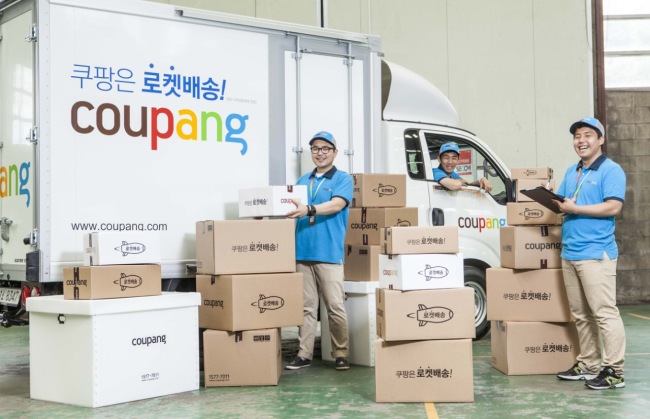Debate over the characteristic of Coupang’s popular Rocket Delivery service was put to rest after a local court on Tuesday upheld its legality, confirming that it was not considered a paid transport service under current law.
“The court has reaffirmed Coupang’s long-standing position that Rocket Delivery was not a paid shipping service,” an official for Coupang said.
Rocket Delivery allows consumers who buy more than 19,800 won's ($18) worth of products from Coupang to receive free guaranteed next-day delivery.
 |
Promotional image for Rocket Delivery (Coupang) |
The service only applies to products that are directly sold by Coupang, and not to products that are sold through other sellers on the platform.
Coupang was sued by the Korea Integrated Logistics Association, a group of logistics firms, in May, 2016, for allegedly violating the Trucking Transport Business Act by offering delivery services without an official license.
Since the launch of next-day Rocket Delivery in March 2014, Coupang has maintained the stance that the service was not a paid shipping service but an “aspect of customer service” because it only applied to products that were directly purchased and sold by Coupang.
The difference between Rocket Delivery and the services offered by existing logistics firms is that logistics firms are paid solely for shipping, while Rocket Delivery is free shipping for orders that exceeded a certain amount, the company said.
“Sellers shipping products to consumers according to their needs does not constitute shipping business as specified in the Trucking Transport Business Act,” the Seoul Central District Court said in the latest ruling.
The Korea Integrated Logistics Association first raised the question of legality regarding Rocket Delivery in March 2015 with the Transport Ministry. Following the Transport Ministry’s green light for the service, the association presented its case to 21 local government agencies, who also determined that the service was legal.
In February 2016, courts turned down the association‘s complaint to suspend the service, which led to the association’s civil suit in May 2016.
By Won Ho-jung (
hjwon@heraldcorp.com)







![[Today’s K-pop] Blackpink’s Jennie, Lisa invited to Coachella as solo acts](http://res.heraldm.com/phpwas/restmb_idxmake.php?idx=644&simg=/content/image/2024/11/21/20241121050099_0.jpg)
